FRANK HAYWARD, THEATRE ORGANIST
OF
THE ADELPHI THEATRE SLOUGH
The Adelphi Theatre Slough opened to the public in 1930 and was without a theatre organ. In 1933, the cinema was taken over by Slough Playhouse Ltd. and a second-hand Christie Organ was installed and made its debut in May 1933 with Bruce Wendall at the Console. The organ had originally been installed at the Empire Theatre Edmonton, which was owned by The Bernsteins, and who had decided to replace it with a Wurlitzer Organ as part of their theatre’s refurbishment.
The Christie Organ from the Empire Theatre Edmonton was later refurbished by Compton where it was converted from a 2 manual 7 unit instrument into one a 3 manual 8 unit. In addition, a Melotone was added and the instrument was equipped with a new Console. The revamped organ was first played in April 1937 by Alex Taylor.
The theatre organ of the Adelphi Theatre remained in place until 1971 when it was removed and broken up. Today, apparently, only the Wurlitizer-style (Granada) ends of the Christie Organ remain and are now attached to the Christie Organ at Castle Hill United Reform Church, Ipswich.
-oOo-
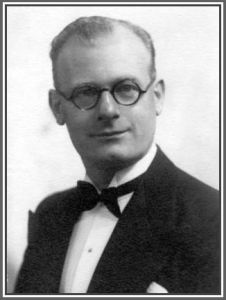 Frank Hayward (1902-1979)
Frank Hayward (1902-1979)
I was contacted recently by the grandson (Mr. Simon Hayward) of the theatre organist, Frank Hayward, who had been the resident organist at the Adelphi Cinema Slough from 1940 until 1945.
Frank Hayward was born in Scotland in 1902, but at some unknown time, the family moved to the south-east of England and eventually retired and lived in Broadstairs. Mr. Hayward’s career as a theatre organist began during the 1920s when he joined the Bernstein Circuit and continued until 1945. Like other theatre organists of the time, his early career during the 1920s was varied and included time spent playing with several dance bands, including the Jack Leon Band and St. Pierre Dance Band.
Mr. Hayward was the leader of the St. Pierre Dance Band and played the piano. At this time, he was living in the St. Peter’s section of Broadstairs, which may well have been the inspiration for the name of The Band. The Band was first mentioned in The Thanet Advertiser when it performed at the then-recently refurbished New Bohemia Theatre-cum-Cinema-cum-Dance Hall in Broadstairs High Street in May 1924. The Band remained at this venue until October 1924 and returned to play there in 1925 also between May and October. The Band also performed around The Isle of Thanet and some of the outlying districts during this time.
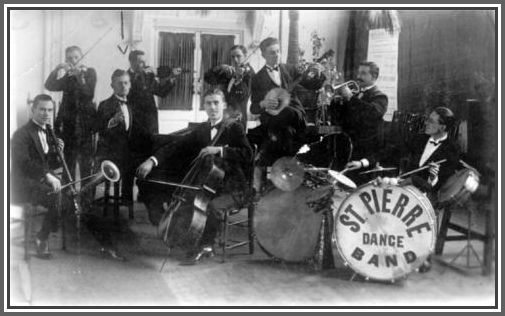 The St. Pierre Dance Band
The St. Pierre Dance Band
During this time, Mr. Hayward played the theatre organs of several cinemas including those of the Grand Theatre Edgware Road, London and the Strand Cinema Southend. He became well known in London theatrical circles at this time through his considerable amount of arranging and orchestration work.
Both Mr. Hayward and the other members of The Band were semi-professional musicians and each retained day jobs. He worked as a clerk for the Broadstairs Borough Council. However, in 1927, he moved to Bexhill-on-Sea where he became the town corporation’s Entertainments Manager. As a result of this move, The St. Pierre Dance Band was disbanded.
In 1930, Mr. Hayward joined Provincial Cinematic Theatres (PCT) and played the theatre organs of a number of cinemas including those of the New Gallery in Regent Street, the Tivoli Cinema in The Strand, the Regent Cinema in Stamford Hill, the Regent Cinema Ipswich and Lozells Picture House Birmingham In addition, he also played at the Rink Cinema Sydenham and made a number of recordings released by Rex Records (1933-1948).
In 1930, PCT was incorporated into the Gaumont British Picture Corporation, and in 1932 this allowed him to play some of the theatre organs installed in Gaumont Cinemas including those at Peckham, Streatham, Hammersmith and Lewisham.
In 1934, Mr. Hayward played with the Commodore Grand Orchestra under the direction of Harry Davidson (1992-1967) with whom he made several gramophone recordings and gave a number of radio performances.
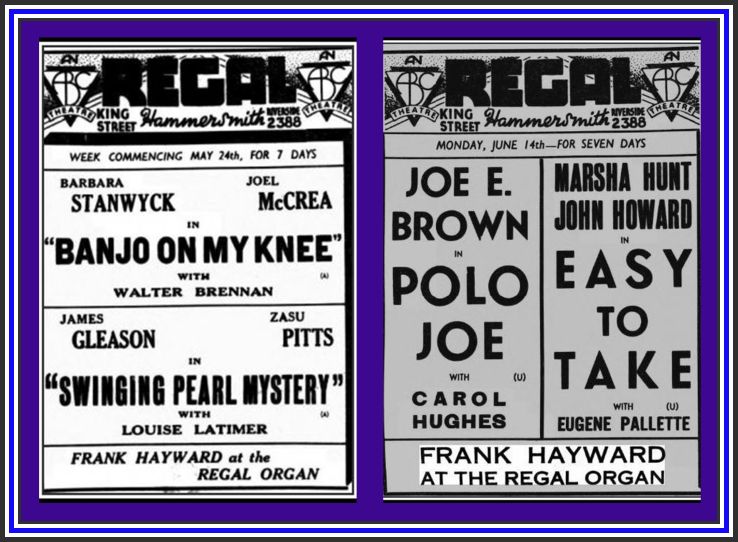 Advertisement for the Regal Cinema Hammersmith.
Advertisement for the Regal Cinema Hammersmith.
The Theatre Organ here was a Compton 2-Manual/5-Rank Instrument
that was installed in September 1936 and which had previously
been installed at the Granada Cinema Hove.
(The Granada Cinema Hove was leased by Granada (Dover) Ltd. from The Granada Theatre Circuit)
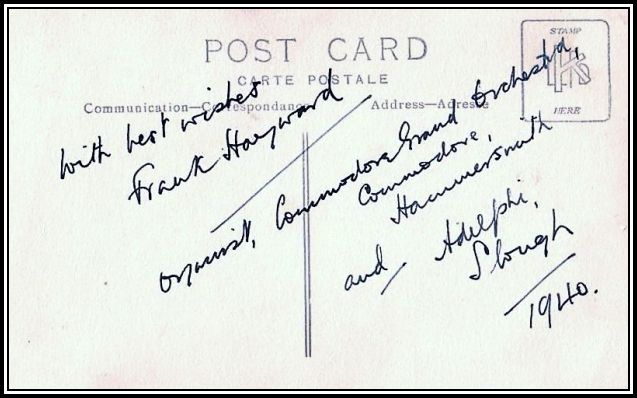
Following this, Mr. Hayward joined the ABC Cinema Circuit where remained for seven years. During this time, he was sent to the Regal Cinema Marble Arch, the Commodore Cinema Hammersmith, the Forum Cinema Ealing and the Ritz Cinema Richmond.
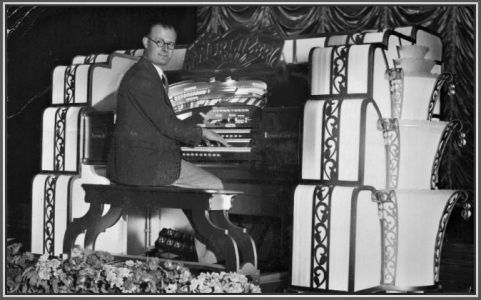 Frank Hayward at the Wurlitzer Theatre Organ installed at the Ritz Cinema Richmond in (1938)
Frank Hayward at the Wurlitzer Theatre Organ installed at the Ritz Cinema Richmond in (1938)
In 1938, he made two appearances at the Odeon Theatre Leicester Square where he played the 5-manual Compton Theatre Organ at the premiere of the film, The Real Glory.

In 1939, Mr. Hayward made his first appearance at the Adelphi Cinema in Slough, but in November he was sent to the Regal Cinema Eastleigh where he remained until March 1940. Following this, he returned to the Adelphi Cinema Slough where he continued to entertain audiences until 1945.
-oOo-
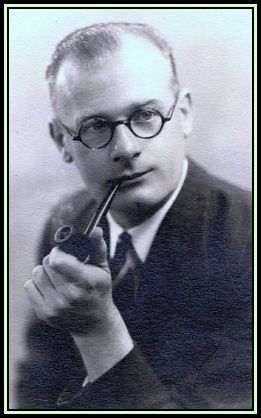
-oOo-
In his spare time, Mr. Hayward enjoyed building high-quality model ships, a hobby that he perhaps developed as a result of his father being in the Royal Navy. One of his models, that of the Queen Mary (it is unclear if this was of the RMS (Royal Merchant Ship) or of the naval version) was used in a film of the real ship produced by Gaumont British.
Following his time at the Adelphi Cinema, Mr. Hayward appeared to have retired from his life as a professional theatre organist and eventually moved to Ealing where he died on the 29th July, 1979.
-oOo-
I would like to thank Mr. Simon Hayward and Mr. Terrance Brown
for their help in the preparation of this page.
——oooOOOooo——
CLICK HERE TO RETURN TO
PAGE SEVENTEEN
THE GRANADA & ADELPHI THEATRES SLOUGH
——oooOOOooo——
